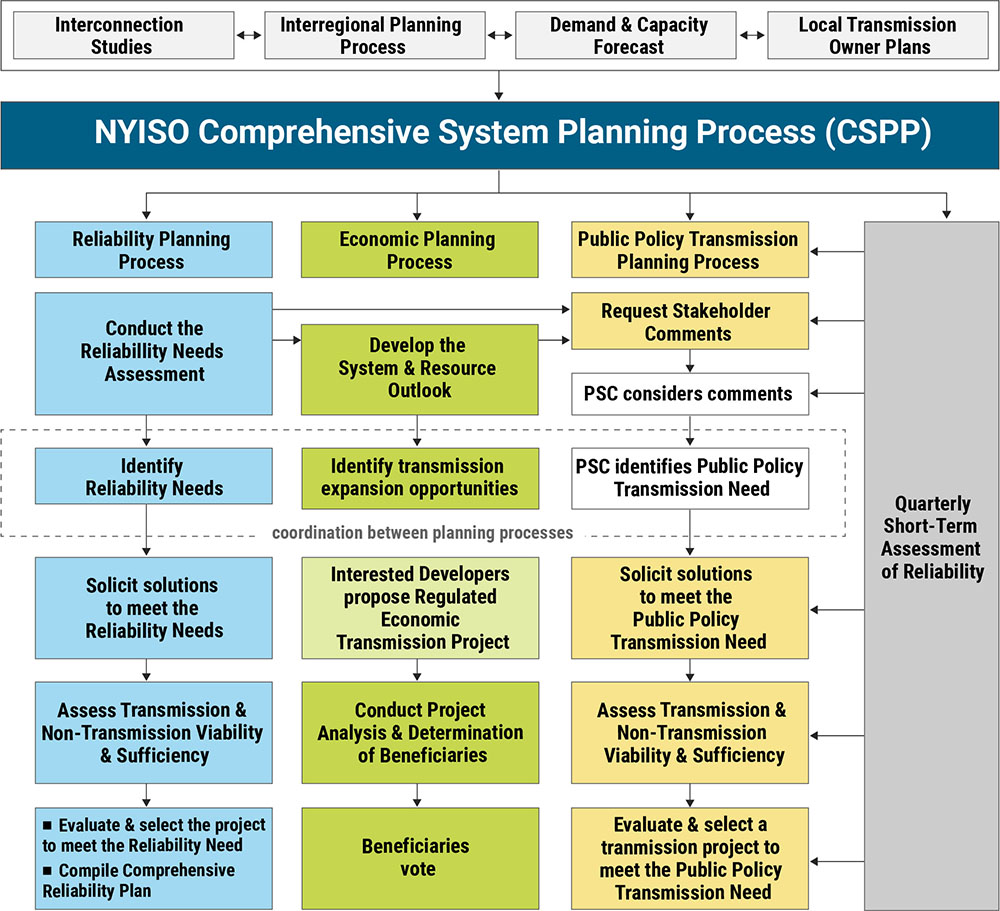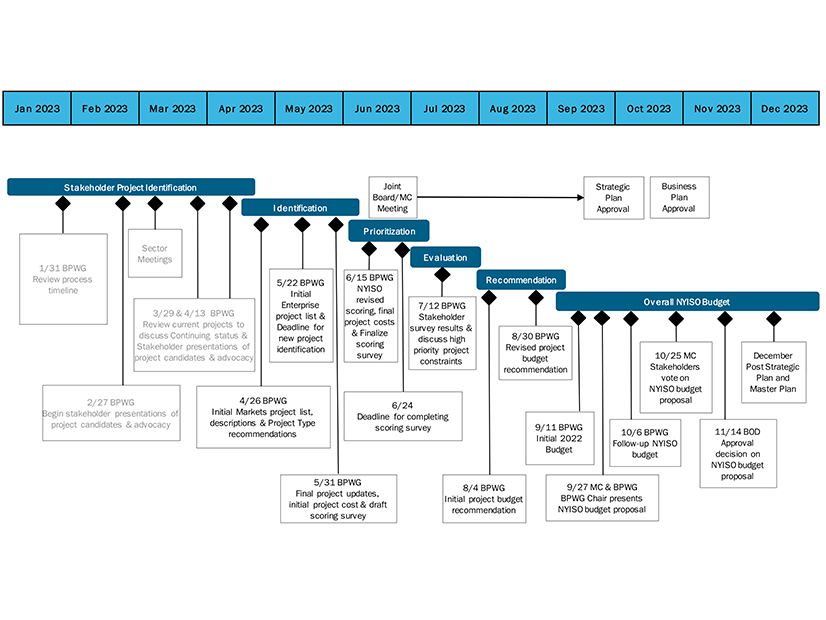ALBANY, N.Y. — NYISO on Wednesday presented the Budget and Priorities Working Group (BPWG) with 48 market projects that it is proposing to be included in its 2024 budget.
The projects include 13 concerning the capacity market, 22 on the energy market and two for transmission congestion contracts. The total is 11 more than were proposed at this time last year in the project prioritization process. The ISO deemed six of the 48 as being mandatory for next year and 29 as priorities.
NYISO anticipates giving stakeholders a clearer indication about each of these projects’ potential resources, budgets, feasibility and constraints in either late May or early June. It will on May 22 both review proposed 2024 enterprise projects and discuss any updates made to the proposed market projects. Stakeholder advocacy and draft scoring surveys are scheduled for the BPWG on May 31.
The ISO asks stakeholders to send any additional feedback or questions to kpytel@nyiso.com by May 15.
Peak Hour Definition
The New York Department of Public Service also told Wednesday’s BPWG meeting that its definition of peak hour is being expanded to consider more than a single hour when determining transmission owners’ and load-serving entities’ obligations.
The department said the change is necessary because it will more accurately determine future peak loads, track customer usage on an hourly basis and more equitably allocate capacity costs among LSEs.
“This project isn’t changing the way that we forecast but is more about how that capacity obligation gets allocated to transmission owners and thus to those load-serving entities,” said Christopher Graves, DPS chief of utility programs.
2023 Project Milestones
NYISO also gave the BPWG a status update about projects prioritized in the ISO’s 2023 budget. (See NYISO Outlines Timelines for 2023 Projects.)
Most projects remain on schedule, but two — upgrading the load forecasting data repository system, and securing better communication channels for market participants to exchange information — are at risk of not meeting their end-of-year milestones.
Meanwhile, the schedule for distributed energy resource participation modeling will most likely be delayed until July.
NYISO will return next quarter to update stakeholders about the status of these projects.
Comprehensive Reliability Plan
NYISO on Tuesday presented its proposed topics for the biennial 2023-2032 Comprehensive Reliability Plan (CRP) at the joint meeting of the Electric System Planning Working Group, Transmission Planning Advisory Subcommittee and Load Forecasting Task Force.
 Flowchart of NYISO’s comprehensive system planning process | NYISO
Flowchart of NYISO’s comprehensive system planning process | NYISO
The topics include winter gas constraints, extreme weather events, the integration of large load scenarios into transmission security and resource adequacy considerations, near-term reliability risks, and subjects identified within the “Road to 2040” section of the Reliability Needs Assessment (RNA), such as dispatchable emission-free resources (DEFRs).
The CRP is the last part of the reliability planning process. It evaluates the viability and sufficiency of the proposed solutions identified in the 2022 RNA. (See NYISO RNA Raises Concerns over Timing of Peaker Unit Retirements.)
Stakeholders attending Tuesday’s meeting pointed out that NYISO continues to discuss DEFRs as part of its proposed solutions to future resource adequacy needs but has yet to flesh out what those resources include or will look like.
NYISO responded that DEFRs represent technologies that either have not been discovered or have not evolved enough to be used at scale, but it stressed that it understood stakeholder concerns.
The ISO will spend the second and third quarters of this year presenting results from the draft CRP, then target the fourth quarter to obtain committee approval.



